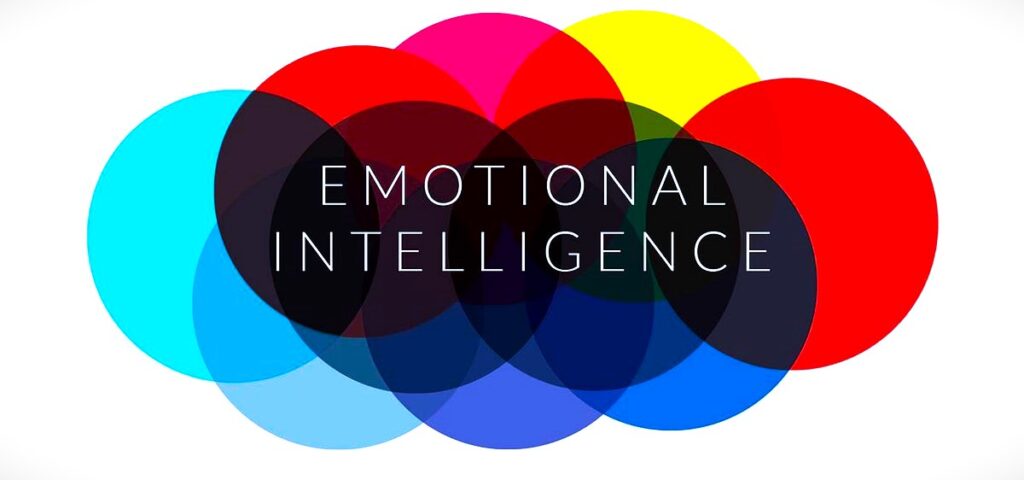Emotional Quotient (EQ) Meaning
Emotional Quotient (EQ) Meaning emotional intelligence, which encompasses the ability to recognize, understand, and manage one’s own emotions, as well as the ability to recognize, understand, and influence the emotions of others. Unlike Intelligence Quotient (IQ), which measures cognitive abilities, EQ focuses on emotional and social skills that are crucial for success and well-being. In this article, we will explore the concept of EQ, its components, and its impact on various aspects of life. Here we will see real meaning of emotional quotient also we will see some components of it.
Components of Emotional Quotient (EQ) :
- Self-Awareness: Self-awareness is the foundation of EQ. It involves recognizing and understanding one’s own emotions, strengths, weaknesses, values, and goals. Individuals with high self-awareness are able to accurately assess their emotions and how they affect their thoughts and behavior.
- Self-Regulation: Self-regulation refers to the ability to manage and control one’s emotions, impulses, and reactions. It involves staying calm under pressure, thinking before acting, and avoiding impulsive behavior. Individuals with high self-regulation are able to adapt to changing circumstances and maintain a positive outlook.
- Empathy: Empathy is the ability to understand and share the feelings of others. It involves recognizing and responding to the emotions of others in a compassionate and caring manner. Empathetic individuals are able to build strong relationships and collaborate effectively with others.
- Social Skills: Social skills refer to the ability to communicate, interact, and build relationships with others. It involves effective communication, conflict resolution, and teamwork. Individuals with strong social skills are able to build networks and work well in diverse teams.
- Motivation: Motivation refers to the drive to achieve goals and pursue excellence. It involves setting challenging goals, taking initiative, and persisting in the face of obstacles. Motivated individuals are able to inspire and motivate others to achieve their full potential.

Impact of Emotional Quotient:
- Personal Relationships: EQ plays a crucial role in personal relationships. Individuals with high EQ are able to communicate effectively, resolve conflicts, and build strong, supportive relationships. They are more empathetic and understanding, which leads to deeper connections with others.
- Career Success: EQ is also critical for career success. In the workplace, individuals with high EQ are able to manage stress, work well in teams, and lead effectively. They are more adaptable and resilient, which is essential in today’s fast-paced and competitive work environment.
- Mental Health: EQ has a significant impact on mental health. Individuals with high EQ are better able to manage stress, anxiety, and depression. They are more self-aware and able to seek help when needed, leading to better mental and emotional well-being.
- Leadership: EQ is an important characteristic of effective leadership. Leaders with high EQ are able to inspire and motivate others, build trust and rapport, and navigate complex interpersonal dynamics. They are able to lead with empathy and understanding, which fosters a positive and productive work environment.
- Conflict Resolution: EQ plays a key role in conflict resolution. Individuals with high EQ are able to manage conflicts constructively, listen actively to the concerns of others, and find mutually beneficial solutions. They are able to diffuse tension and build consensus, leading to more harmonious relationships.

5 Super Smart Ways to Raise Your Emotional Quotient (EQ)
- Practice Self-Awareness:
- Mindfulness Meditation: Engage in regular mindfulness meditation to become more aware of your thoughts, emotions, and reactions. This practice can help you recognize your emotional triggers and respond to situations more thoughtfully.
- Journaling: Keep a journal to track your emotions and reflect on your experiences. This can help you identify patterns in your emotions and behaviors, leading to greater self-awareness.
- Mindfulness Meditation: Engage in regular mindfulness meditation to become more aware of your thoughts, emotions, and reactions. This practice can help you recognize your emotional triggers and respond to situations more thoughtfully.
- Develop Empathy:
- Active Listening: Practice active listening when communicating with others. Pay attention to their verbal and non-verbal cues to understand their emotions better.
- Put Yourself in Their Shoes: Try to see things from the other person’s perspective. This can help you empathize with their feelings and respond more compassionately.
- Active Listening: Practice active listening when communicating with others. Pay attention to their verbal and non-verbal cues to understand their emotions better.
- Manage Stress Effectively:
- Stress-Relief Techniques: Use stress-relief techniques such as deep breathing, yoga, or exercise to manage your stress levels. High stress can impair your ability to think clearly and manage your emotions effectively.
- Time Management: Improve your time management skills to reduce stress. Prioritize tasks, set realistic goals, and learn to say no when necessary.
- Stress-Relief Techniques: Use stress-relief techniques such as deep breathing, yoga, or exercise to manage your stress levels. High stress can impair your ability to think clearly and manage your emotions effectively.
- Develop Social Skills:
- Effective Communication: Learn to communicate your thoughts and emotions effectively. Practice assertiveness and conflict resolution skills to navigate challenging situations.
- Build Relationships: Invest time in building positive relationships with others. This can help you develop a support system and enhance your emotional well-being.
- Effective Communication: Learn to communicate your thoughts and emotions effectively. Practice assertiveness and conflict resolution skills to navigate challenging situations.
- Cultivate Optimism:
- Positive Thinking: Cultivate a habit of positive thinking. Focus on the good in every situation and practice gratitude for the things you have.
- Learn from Setbacks: View setbacks as learning opportunities. Instead of dwelling on failures, analyze what went wrong and how you can improve in the future.
- Positive Thinking: Cultivate a habit of positive thinking. Focus on the good in every situation and practice gratitude for the things you have.
In Conclusion- Emotional Quotient (EQ) Meaning
is a critical factor in success and well-being. It encompasses self-awareness, self-regulation, empathy, social skills, and motivation. By developing and enhancing these skills, individuals can improve their personal relationships, career success, mental health, leadership abilities, and conflict resolution skills. EQ is a skill that can be learned and developed, leading to a more fulfilling and successful life.
FAQs: Emotional Quotient (EQ) Meaning
What is Emotional Intelligence (EQ)?
Answer: Emotional Intelligence (EQ) refers to the ability to recognize, understand, manage, and utilize emotions effectively in ourselves and others.
Can Emotional Intelligence be developed?
Answer: Yes, EQ can be developed and improved over time with practice and training. Techniques such as mindfulness, active listening, empathy exercises, and reflective practices can help enhance emotional intelligence.
How does Emotional Intelligence differ from IQ?
Answer: IQ (Intelligence Quotient) measures cognitive abilities, such as logical reasoning, mathematical skills, and analytical thinking. EQ, on the other hand, measures emotional and social skills. While IQ is important for academic and professional success, EQ is crucial for managing emotions and relationships effectively.
What are the benefits of high Emotional Intelligence?
Answer: Individuals with high EQ tend to have better mental health, superior job performance, stronger leadership skills, more fulfilling relationships, and effective conflict resolution abilities. They are often more resilient and better equipped to handle stress and adversity.

